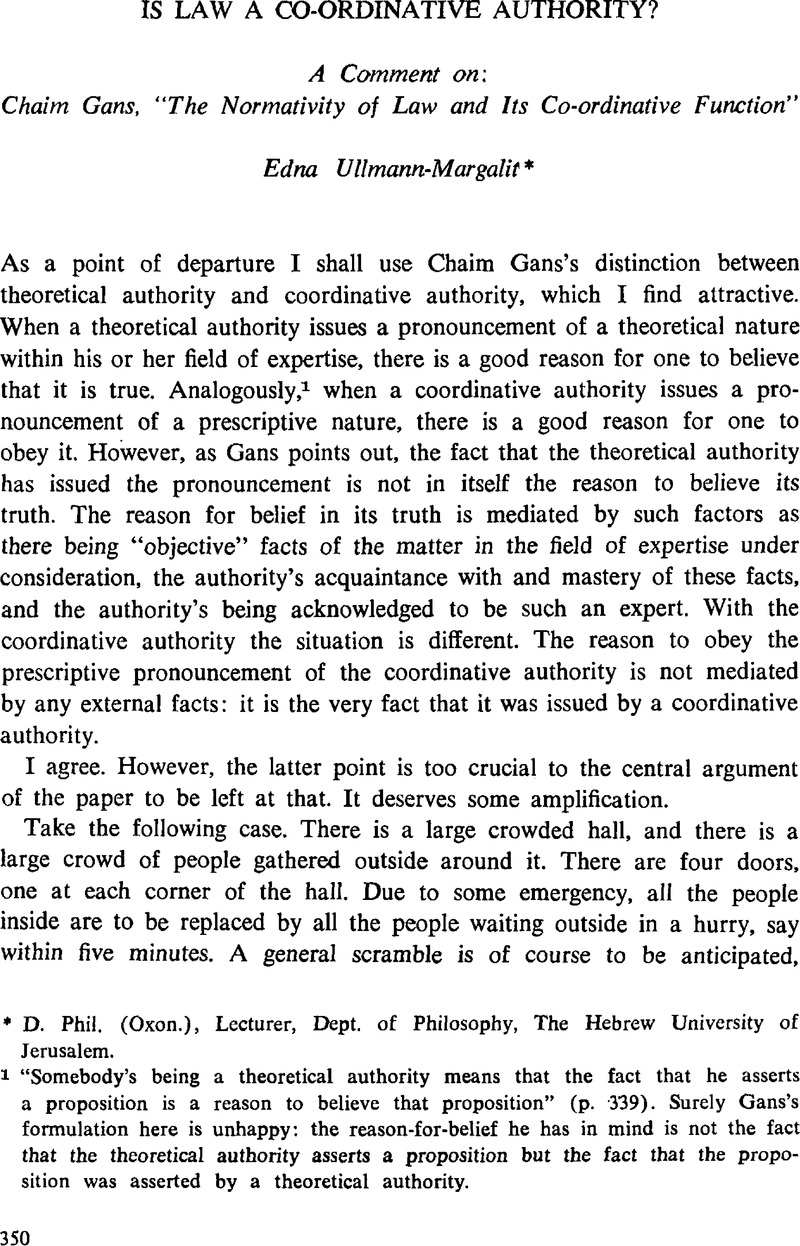No CrossRef data available.
Published online by Cambridge University Press: 12 February 2016

1 “Somebody's being a theoretical authority means that the fact that he asserts a proposition is a reason to believe that proposition” (p. 339). Surely Gans's formulation here is unhappy, the reason-for-belief he has in mind is not the fact that the theoretical authority asserts a proposition but the fact that the proposition was asserted by a theoretical authority.
2 For a detailed characterization of the notions of coordination problem and coordination equilibrium see my The Emergence of Norms, (Clarendon Press, Oxford, 1977), esp. pp. 77–83.
3 For the notion of the Prisoners' Dilemma (PD), the generalized PD-structured situation, and its solution in terms of a stabilizing device, see The Emergence of Norms, op. cit., esp. pp. 18–30.
4 A small point of polemics regarding note 16: I agree that coordination is ordinarily required for the sake of some further purpose, even that it is often required for the sake of some further collective purpose. I disagree, however, that it must be required for the sake of promoting a cooperative goal in the very restricted sense I give this notion (The Emergence of Norms, op. cit. pp. 130–131): the avoidance of embarrassment may be a noble purpose, but it is not a cooperative goal.